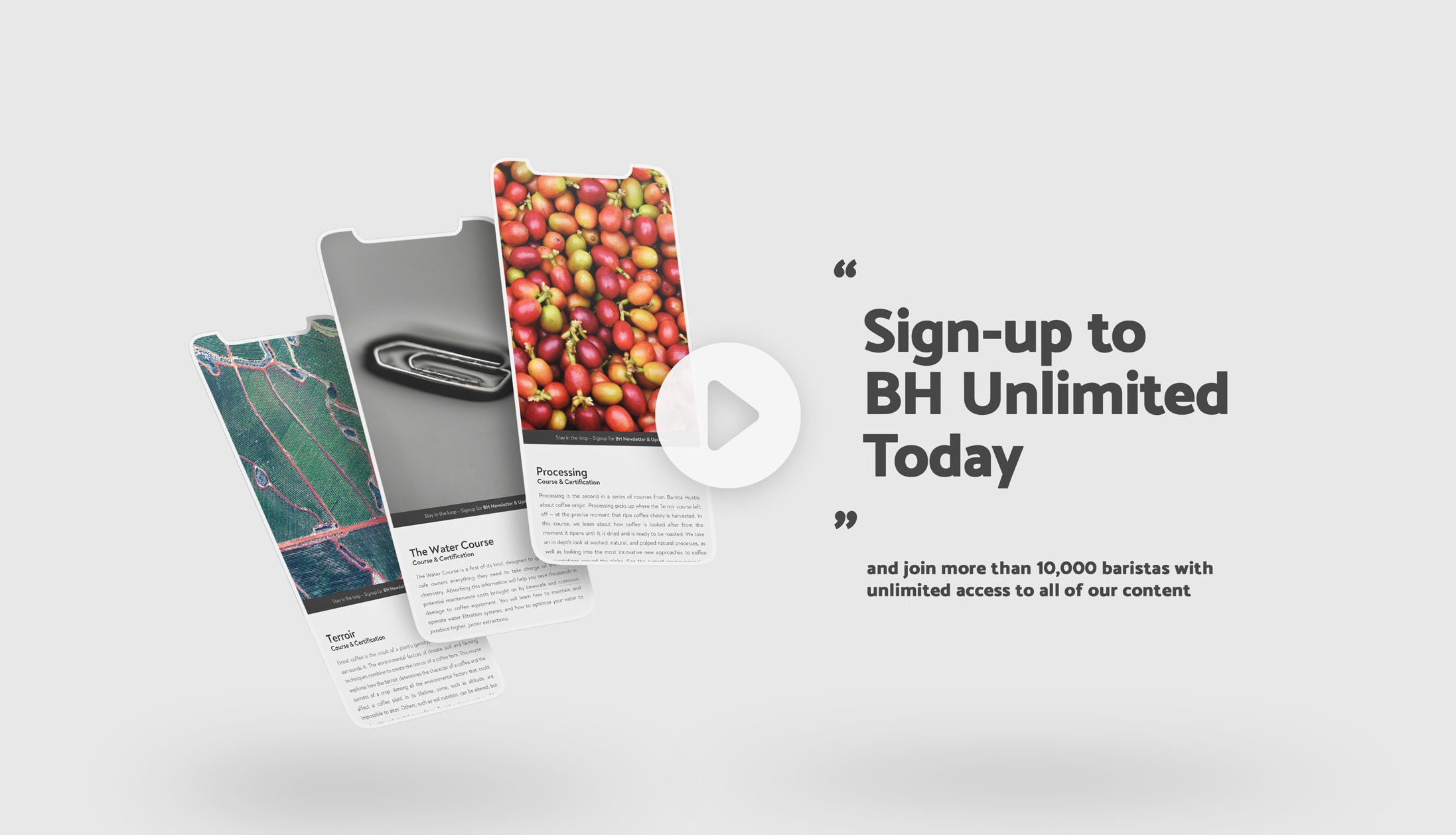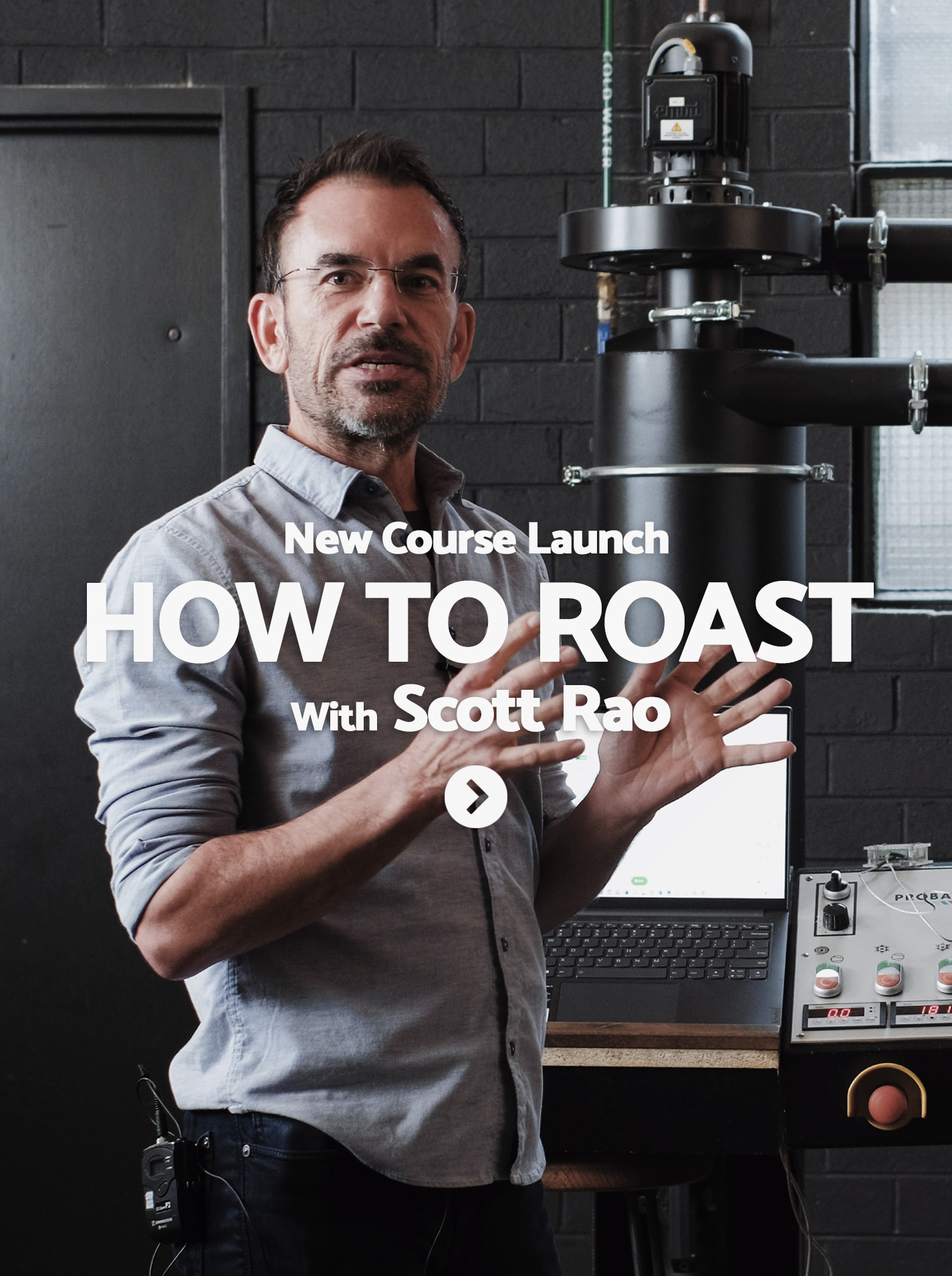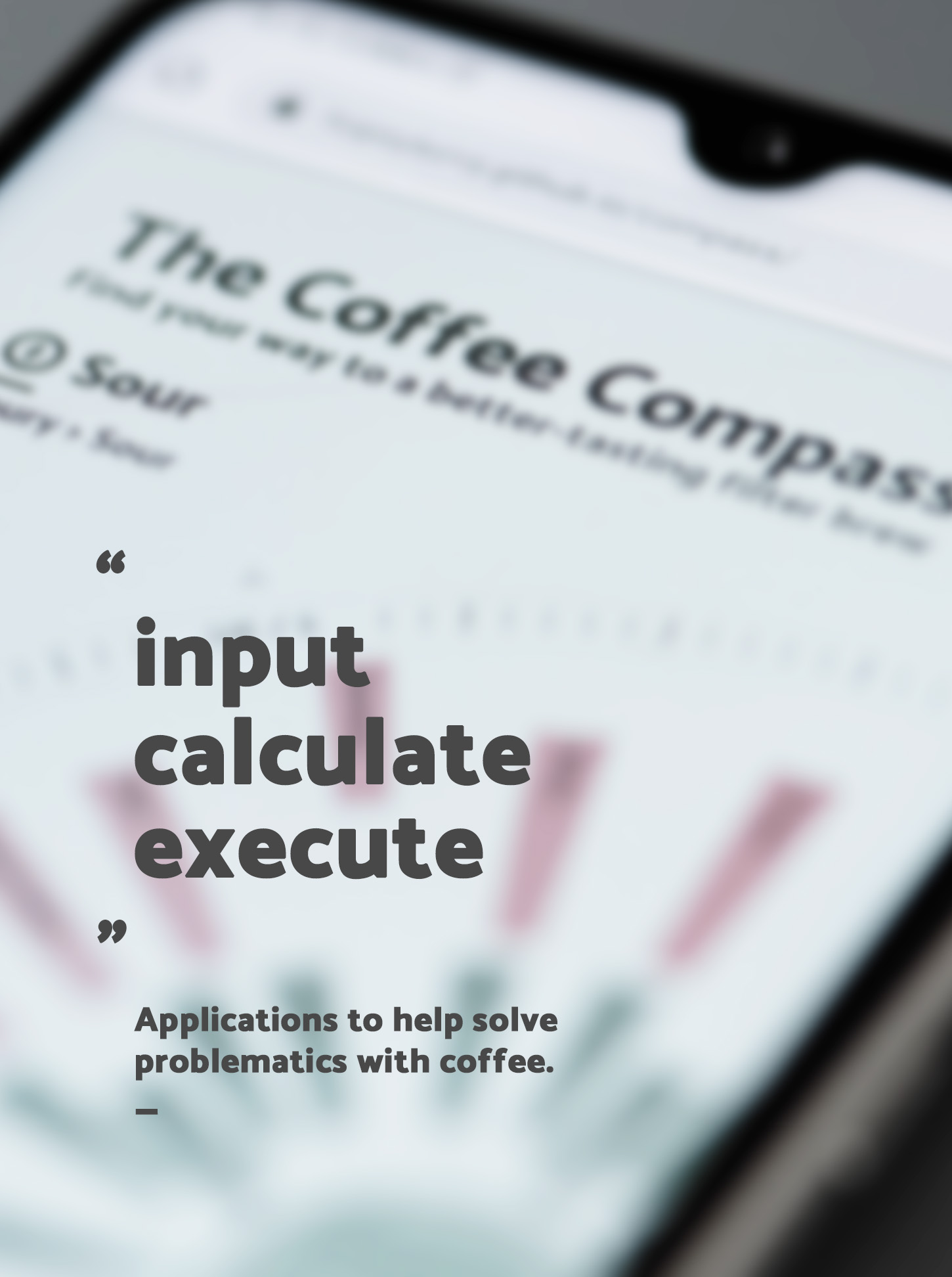Note: This post has been updated! In July 2019 we wrote a follow up to this post, using a different set of concentrates to make it even easier to develop your own water recipes. Since having two different sets of instructions was getting confusing, we’ve changed the instructions in this post to bring them into line with each other, and to correct a slight error in the previous calculations. The new post includes an awesome online calculator to help you work out exactly how to remineralise your brew water.
Our Barista Hustle water recipe was and is a useful starting point for building water, giving you a good chance of success when brewing up coffee at home. For those willing to dive a little deeper, we can get far more specific.
The math can get rather complicated so we’ll spare the details until another time. The motivating factor here was to get the two variables (buffer and magnesium) into separate concentrates that are easily added to distilled water. This means you can create any brewing water with some combination of the two. Kind of like an etch-a-sketch for brewing water!
Here’s the recipe to get there:
Ingredients:
Baking Soda – NaHCO3, Sodium Bicarbonate, Bicarb (not baking powder)
Epsom Salts – MgSO4, Magnesium Sulfate (don’t worry about “do not eat” labelling. We’re working with miniscule amounts, diluted 1000x, and boiling the water afterwards.)
Deionised/Distilled/Ultra-pure water (don’t worry about “not for drinking” label. This is to prevent people drinking too much ultra pure water. We’re adding minerals though, so it’s ok)
All ingredients are readily available from most supermarkets etc, and are super cheap.
Equipment:
Scales (accurate to 0.01g)
3 x ~1L water containers (preferably glass, and odour/residue free)
Method:
- Dissolve 1.68g baking soda in 1L of deionised water — this is your “buffer” concentrate, or “alkalinity”. Label and set aside.
- Dissolve 2.45g Epsom salts in another 1L of deionised water — this is your “Magnesium” concentrate, or “total hardness”. Label and set aside.
It’s important to note here also these recipes use magnesium as the source for total hardness; not calcium. This method only requires ingredients easily obtained from any supermarket. This is entry level stuff. You can mess about with calcium, sulphates, chlorides, and pH control when you graduate from here. Alternatively we’d encourage you to buy the book.
The following are a list of recipes where you will add a small amount of each concentrate to a separate volume of fresh deionised water.
Recipe 1 – Melbourne
- 11.5g Buffer
- 23.7g Mg
- 964.8g DI water
This is a close approximation to Melbourne water. This is very “soft” water, low in mineral content, and useful for those long filter brews or cuppings drawn out over five to ten minutes. Would also help with those darker espresso roasts that don’t need as much help extracting out flavours.
Recipe 2 – WOC Budapest
- 40.1g Buffer
- 51.2g Mg
- 908.7g DI water
This is in the target range for the World Brewers Cup in Budapest (51 mg/L total hardness as CaCO3, 40 mg/L alkalinity). In Budapest the total hardness would come from calcium as well as magnesium, leading to a different flavour outcome — competitors beware …
Recipe 3 – SCA
- 40.1g Buffer
- 68.6g Mg
- 891.3g DI water
This is the official SCA specifications from the SCAA 2009 handbook. Similar to Budapest only the total hardness has gone up slightly. The specifications state a range of total hardness as low as 17 mg/L as CaCO3 up to 85 mg/L as CaCO3. So you could keep your buffer here constant at 40.1g and go as low as 17g of Mg solution or as high as 85g (don’t forget to subtract the total concentrates used from your DI water!).
Recipe 4 – Barista Hustle Water Recipe
- 40.1g Buffer
- 80.7g Mg
- 879.2g DI water
The original Barista Hustle water recipe — where it all began. Add an extra 4.3g of the Mg concentrate and you’re at the top limit of the SCA specifications.
Recipe 5 – Rao Water
- 50.1g Buffer
- 75.7g Mg
- 874.2g DI water
This is close to Scott Rao’s recommended water chemistry for brewing flavourful, balanced coffee. Slightly higher than the SCA in both total hardness and buffer, with a little more buffer than the BH recipe.
Recipe 6 – Hendon Water
- 30.8g Buffer
- 99.9g Mg
- 869.3g
This is close to the centre of Christopher Hendon’s and Maxwell Colonna-Dashwood’s “Ideal Brew Zone”. If you’re inclined to “dial in” some water for a particular roast, this is a good starting point.
Recipe 7 – Pretty Hard
- 35.1g Buffer
- 126.1g Mg
- 838.9g DI water
This begins the ascent up in water “hardness”, probably better suited to espresso, or at least short brew times for filter. This is starting to grab a lot out from the coffee so brew recipes would need some adaptation. This rips everything out from the coffee. So either slow down or speed up the brew time via grind adjustments, and shorten or increase your beverage weight. Dependent on the roast somewhere along those two spectrums you’ll find something tasty. Or not.
Recipe 8 – Hard dot AF
- 45.2g Buffer
- 176.8g Mg
- 778g DI water
This is a fairly high point with pushing mineral level where you’re basically cranking the amp up to 11. Your brew parameters from the earlier water recipes would need to change a lot here.
Where to from here?
We’ve designed these concentrates to be super easy to experiment with. You don’t have to stick to our recipes!
To make your own, you only need to know two things.
- The concentrates are made so that 1g of concentrate equals 1ppm of GH (for the magnesium solution), or KH (for the bicarbonate solution), after dilution in 1L of water.
- Subtract your total concentrate weight (in grams) from 1000 and that’s how much water you need to dilute them with.
If your buffer amount used was 30g, and your Mg amount was 60g (90g total), you would be adding this to 910g of distilled water (1000g minus 90g). You’ll get the hang of it by reading the recipes above. This would give you a KH of 30ppm and a GH of 60ppm.
Let us know how you go in the comments below!




Hi, just wondering about using RO water. I made the Mg and buffer solutions with Distilled water, but hope to combine them with RO. My RO water reads at 15ppm, any specific adjustments I should make to the buffer to get to the suggested alkalinity?
Hey bman668. If you head over to this page https://www.baristahustle.com/app-archive-main/the-water-calculator/ you’ll find our new water calculator. Just hit the Remineralizer tab and you’ll be able to input the mineral breakdown of your RO water and the app will help you calculate how much concentrate to add.
You guys are amazing, thank you!
I’ve checked TDS of the concentrates and for both I’ve got about 750 ppm. Is that a correct value? I thought it should be 1000 ppm. I made another batch and the values are the same.
2.45g dissolved into 1L is actually 2453 ppm TDS, so your TDS meter is even further off than you thought!
These solutions give a hardness of 1000 ppm in CaCO3 equivalents. That is very different to TDS, and in any case your TDS meter isn’t designed to measure this kind of solution, it can only estimate the TDS of natural (tap) water. You can read more detailed explanations for both of these ideas in the updated post.
Hello!
My name is Ian, I’m new here and was wondering if the minerals from these two ingredients provide any calcium? Is this safe for my espresso machine?
Hi Ian, it’s very wise of you to worry about machine safety and limescale or corrosion. Last year we launched this web app called the water calculator to help you predict whether your water may or may not be scale forming or corrosive using the Langelier Saturation Index. In answer to your questions, epsom salts and bicarbonate of soda won’t add any calcium to your water but if you’re remineralising with water that does contain some calcium, the calculator can help you track the scale-forming potential of that water before and after remineralisation.
Can you compare this with the V1.0 water recipe of 8.6g Buffer/25g Mg to 500g Di water, as in …
„V1.0 BH Water Recipe- X grams buffer & Y grams Mg to Z grams Di water makes 1L brew water“???
Very interested in knowing where it would fit in with the above recipes and thinking it is different than Recipe 4- BH WR.
🙏🏼🙏🏼🙏🏼
Hi Dan, thanks for commenting and following this recipe all these years!
For those that don’t follow, the original original BH recipe posted in discussion groups was:
Add 8.6g Bicarb and 25g Epsom salts to 500g DI water to make a concentrate. Add 2g of concentrate to another 500g DI water to get your brewing water.
This gives water with a GH of 80 and KH of 40 – so the result is very much the same as recipe 4 above. If you like it, then stick with it – the only advantage of using two concentrates is that you can easily switch it up for different coffees if you want to. Happy brewing!
For some reason when i started doing this, i had the concentrate recipes as
1.38g Bicarbonate to 1L deionised water
10.14g Epsom Salt to 1L deionised water
Did i have a fever dream and make these up, or were these once the concentrate recipes that have since changed?
Hi Nicolas, We did this update a couple of years back to fix some errors in the previous calculations: https://www.baristahustle.com/blog/diy-water-recipes-redux/
May I simply say what a relief to uncover somebody who genuinely knows what they’re talking about over the internet. You definitely know how to bring a problem to light and make it important. A lot more people need to look at this and understand this side of your story. I was surprised that you’re not more popular because you surely have the gift.
Hi, im having trouble comparing the minerals and buffers where i live to the ones you use in the chart. So i dont know where to start or what to add. My city shows calcium, sodium, and CaCO3. There is no Mg or or HCO3. I can include values if you need. Thanks!
You can buy GH and KH tester and test it out with your water.
quote (You can mess about with calcium, sulphates, chlorides, and pH control when you graduate from here. Alternatively we’d encourage you to buy the book.) Can you tell me which book should i buy? show me the book name please, many thanks!
https://eustore.sca.coffee/products/book-water-for-coffee?variant=5081224388